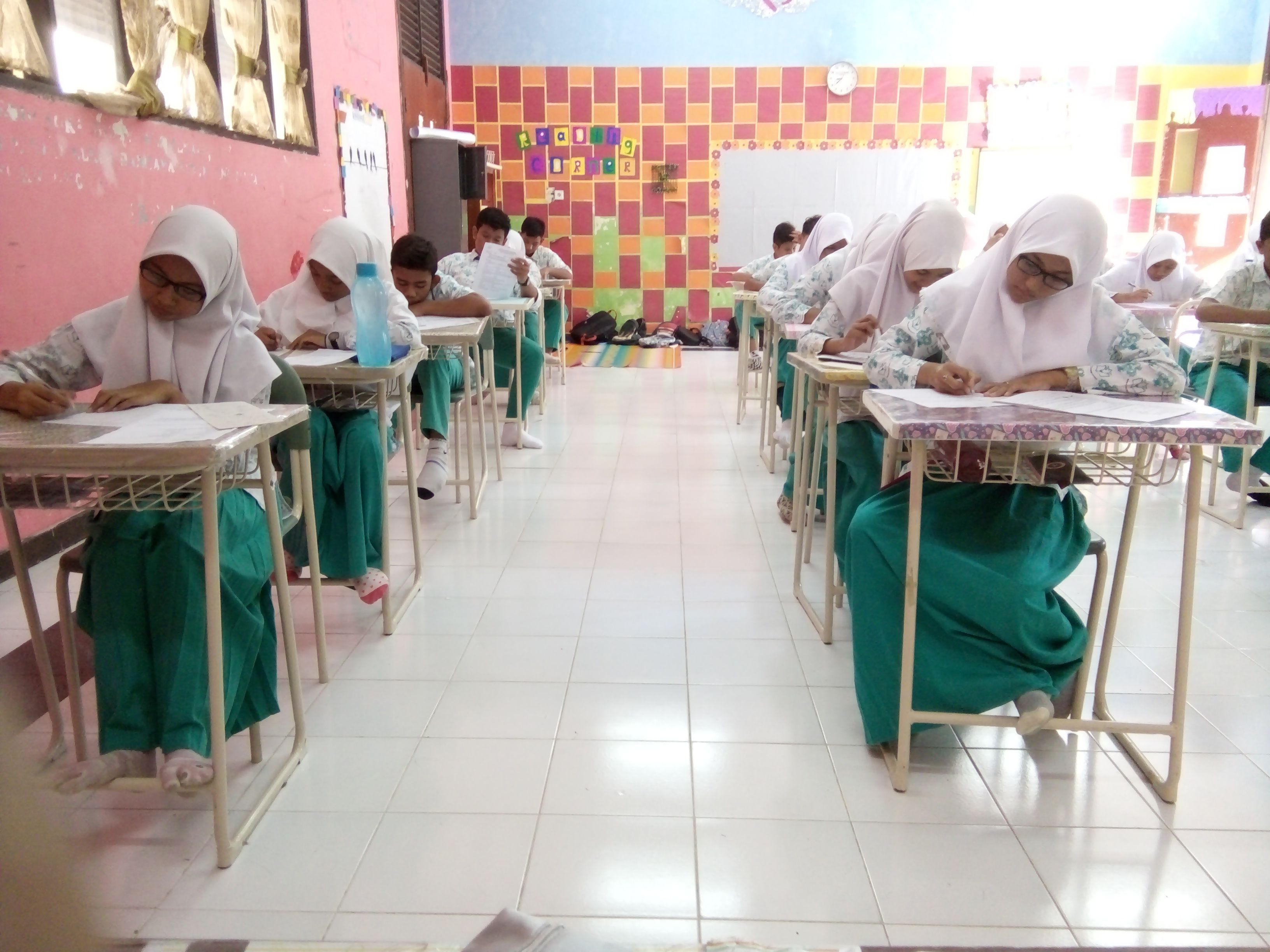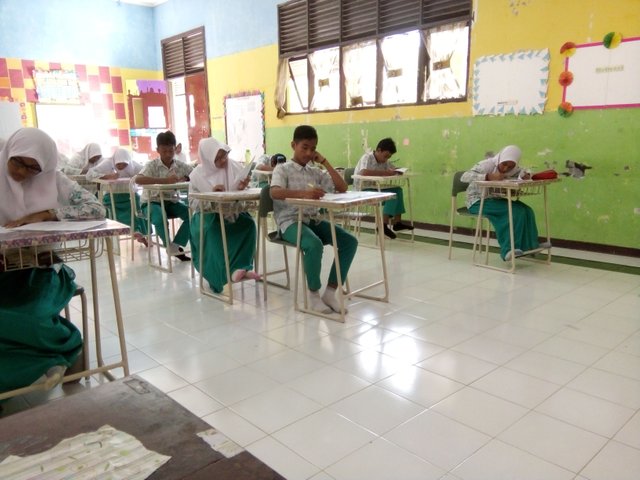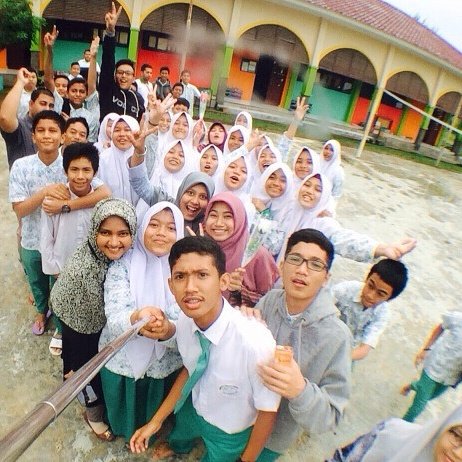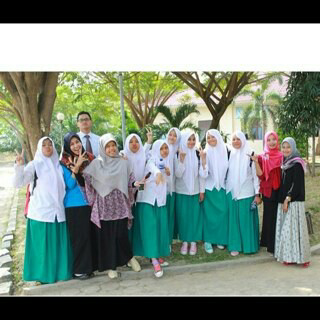TOWARD THE FUTURE: REFLECTION ON ASSESSMENT AND EVALUATION
The current state of assessment and evaluation in Indonesia

Let us start from the most recent event regarding evaluation in Indonesia.
Since the beginning of this month, there has been a debate whether national examination program (UN) will be continued or terminated. It was started by the Minister of Education and Culture, Muhajir Effendi, who after some brief time in the office announced the planning of terminating that high-stake evaluation through a moratorium. The news was then welcome happily, not only by the academics but also by the society at large.

Previously, there had been a judicial review on the program and the government had been ordered legally to terminate it. However, the government keeps going on and abandons the judicial review. For several years since then, Indonesia conduct national exams for primary, lower secondary and upper secondary levels.
It was then Indonesia’s Vice President, Muhammad Yusuf Kalla, who tackled the plan of the Minister of Education. Being the one behind the idea of national exams since his first period in the office but with different President, Yusuf Kalla thinks like as a businessman, or has been accused as having exaggerated the importance of the high-stake evaluation program based on his neoliberal pro-market perspective.
So, after some hullabaloo, involving the President himself, it has then been decided that there is still national examination program as before. Despite some political pleasantries, what can be seen is that it should be dealt as a business as usual.
Following the Vice President’s logic, what actually occurs is the tendency to think of a panacea in order to solve the contemporary education problems. Previously, the same logic can be seen applied especially in the enactment of Indonesian 2013 Curriculum. With his business background, he can be seen as thinking of a single shortcut for every problem in a field.
Thus, apart from some other reasonable reasons in evaluation discipline, such as the need for mapping out educational achievement in Indonesia, national exams program is consciously intended to be used as ‘a pulley’, with which educational quality is thought can be boosted. Consequently, it strengthens the tendency for standardization which in Indonesia means policy centralization and the weakening of the autonomy of the schools and the teachers.

It also means that ‘shadow education’—learning at schools and/or non-school learning centers with the main is aimed at boosting students’ ability to answer exams problems—is legally preserved. So, learning, operationally, becomes more defined as any efforts that enable learners to answer problems in their multiple forms of exams, yet shadowed by competence-based curricula, active learning, student-centered concept and so on.
The above story can be seen as representing the main problem in Indonesia’s educational assessment and evaluation system. More complicated than what is described generally by Simola et al. (2013), that the contemporary trend globally is the tendency of traversing convergence path, Indonesia has become a more extreme case. Being one of the lowest in the rankings of PISA and TIMSS, what is in the mind of the likes of the Vice President is to be able to do a great leap using instruments such as national exams program. In fact, there have been tens of years of failure with such policy.
Compared to Finnish educational system, what is lacking is, first, an educational culture, with which is defined an educational identity. There are some kinds of rhetoric, certainly, such as claims that Indonesia’s education is based on national values and so on. Yet, it is still like a ship with unclear direction.
Second, education can be seen as not managed for education. Economic, political, ideological, and vested interests of the state functionaries and politicians are everywhere. Being teachers for several years, while Khairil Azhar has been a teacher more than fifteen years, such fraud even can be seen in everyday routine at school level. Teachers and schools administrators, while ethically they are to serve their students, are made busy with what are demanded administratively by local and national state educational offices.

So, in terms of evaluation, we can reflect that in Indonesia, it is much more saddening than what is described by Atjonen (2013) that “evaluation may easily become a superficial exercise of data gathering, to maintain an image of a ‘dynamic school’ where the main function of evaluation is lost: to improve the education of pupils”.
A vision of Indonesia’s 2025 evaluation system.
Based on our group discussion, we are not without any hopes. Internationalization of education, for instance, apart from its negative sides, actually promises a hope. Globalization, also, with which the internationalization rides in, which can be an uncontrollable juggernaut, is also with a promising hope. Although it might be seen as ‘an audacity to hope’, both phenomena are coming with certain enlightenment which can make people see things differently. In short, they can become the tools with which certain changes can happen. As a country with complicated problems of its education, external boosts are always seen attentively.
Internally, capacity building, especially of the teachers, is the thing we definitely should do. However, the reachable distance we can think of in the time being is as far as what we at Sukma Bangsa Schools can do, certainly not only for ourselves but also for those neighboring us. If what we develop here can influence others in the next eighteen years, in which evaluation is really developed to improve learning and education, it means we are able to contribute something to Indonesia.
Internally, we are now starting with an academic tradition as a form of capacity building, learning from Finnish education, regardless however insignificant we might be able to absorb. We are now starting an academic journal in education, in which what develops in our and others’ experiences can be recorded and learnt and shared. And certainly, we will try to find any other breakthroughs, with which we can develop more.